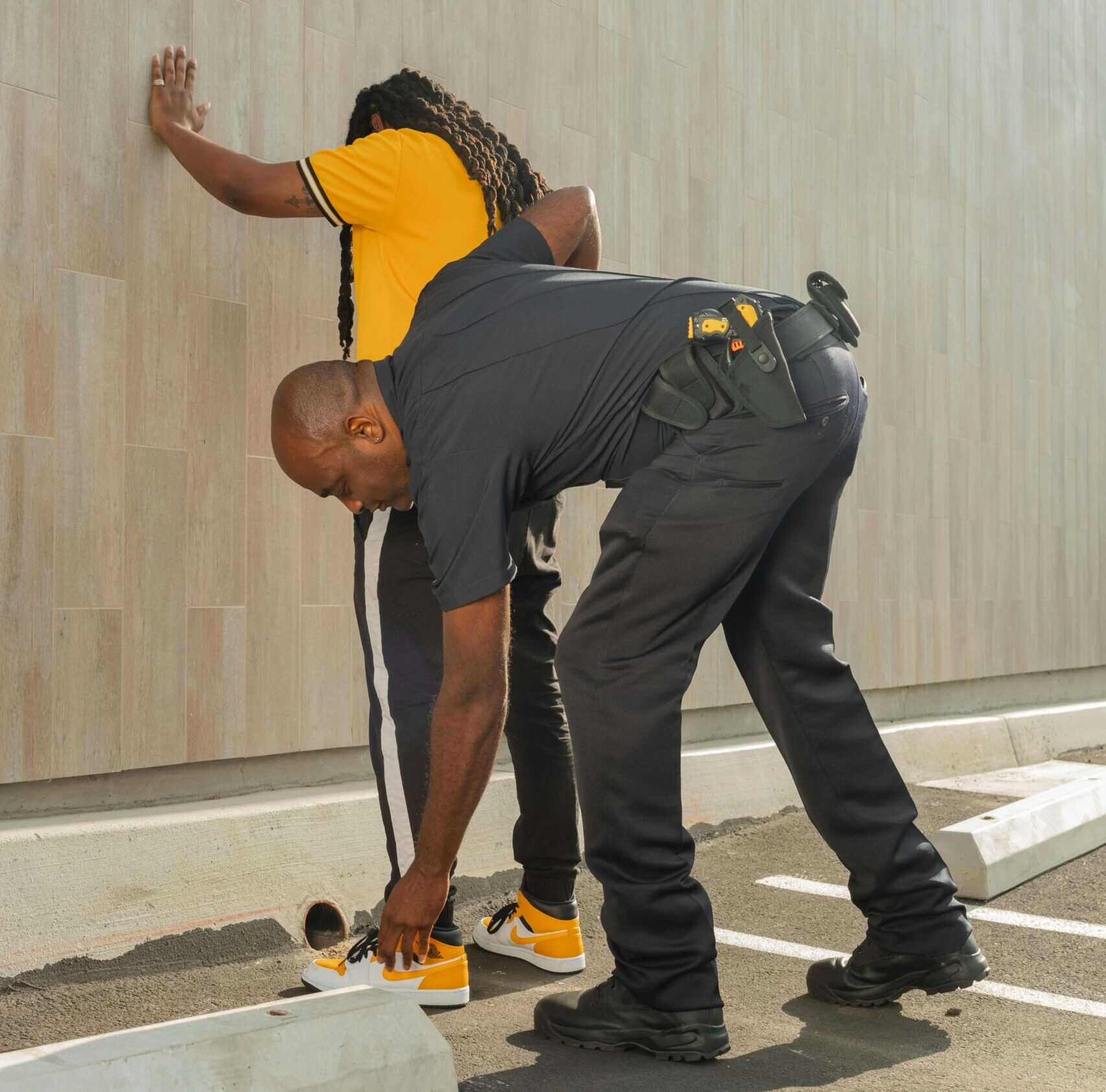- DUI
- Criminal Defense
- Florida DUI
- Traffic Offenses
- Drug Charges
- Marijuana Charges
- Violent Crimes
- Domestic Violence
- Temporary Injunctions
- Weapons Charges
- Theft Crimes
- White Collar Crime
- Juvenile Offenses
- Sex Crimes
- Violation of Probation
- Early Termination of Probation
- Seal or Expunge Criminal Record
- Criminal Appeals
- US Federal Offenses
- Misdemeanor Charges
- Felony Charges
- Co-Defendant Cases
- College Student Defense
- College Student Hearings
- FSU Students
- FAMU Students
- Florida Panhandle Arrests
- Extradition to Florida
- Bench Warrants / Warrants
- Emergency Bond Hearings
- Gambling Charges
- Drone Arrests
- Marsy’s Law
- UAS Infractions
- Introduction of Contraband
- Lying to Police
- Locations
- Case Results
- Our Firm
- Media
- Resources
- Blog
- Contact Us
What is Stop and Frisk in Florida?
June 24, 2024 Don Pumphrey, Jr. Criminal Defense Social Share
A brief investigative stop, or “Terry stop,” is a temporary detention of someone who is suspected to be or have been involved in criminal activity, for the purpose of investigating that suspected criminal activity. A brief investigative stop during which an officer searches the person who has been stopped is commonly referred to as a “stop and frisk.” Brief investigative stops became a popular tool for some law enforcement agencies after the Supreme Court declared they were constitutional in Terry v. Ohio (1968) and Illinois v. Wardlow (2000).
However, performing a stop and frisk requires law enforcement to have a “reasonable articulable suspicion” of criminal activity being afoot. So, what is stop and frisk?
What’s the Stop and Frisk Law in Florida?
Florida Statutes Section 901.51 is referred to as the “Stop and Frisk Law,” which outlines when reasonable articulable suspicion can be formed. The elements of a stop and frisk are as follows:
- Stop: When an officer encounters any person under circumstances which reasonably indicate that such person has committed, is committing, or is about to commit a crime, the officer may temporarily detain them for the purpose of ascertaining their identity and the circumstances surrounding the person’s activity.
- Frisk: If an officer has probable cause to believe that the person is armed with a dangerous weapon such as a gun, the officer may search them for the weapon. If the person is indeed armed, their weapon can be seized by police.
Without reasonable articulable suspicion, the officer can neither stop nor frisk someone. An officer having a “good faith belief” that the stop is necessary, but lacks reasonable articulable suspicion, will not stand up to scrutiny in a court of law.
The basis for reasonable articulable suspicion is the U.S. Supreme Court’s decisions in Terry v. Ohio (1968) and Illinois v. Wardlow (2000). But some Florida court rulings have also shaped state laws on brief investigatory stops.
For example, Florida courts have ruled brief investigatory traffic stops are allowed when:
- There is a reasonable suspicion of impairment or unfitness of the driver, or vehicle defects. Hurd v. State, 958 So. 2d 600, 603 (citing Esteen v. State, 503 So. 2d 356 (Fla. 5th DCA 1987)
- Someone is driving in a pattern indicating they are sleepy or alcohol-impaired. Bailey v. State, 319 So. 2d 22, 26 (Fla. 1975)
- A car is weaving within its lane and changing speeds rapidly. Brown v. State, 595 So. 2d 270 (Fla. 2d DCA 1992)
All of these scenarios constitute reasonable articulable suspension for a brief investigatory traffic stop under Florida law, which is regulated Section 901.151.
On the other hand, an anonymous tip describing a person’s location and appearance, but alleging no criminal activity, cannot be used as a basis for an investigatory stop in Florida. This ruling was appealed to the U.S. Supreme Court, where it was affirmed. Florida v. J.L., 529 U.S. 266 (2000).
Things To Remember
There are some critical things to remember in the event that you are targeted for a brief investigatory stop.
- You have the right to remain silent if the officer asks you questions
- You have the right to refuse a frisk, unless the officer has developed a reasonable belief that you are armed and dangerous
If you believe you have been stopped or frisked without reasonable articulable suspicion, consult with an experienced Criminal defense attorney at Pumphrey Law. Don Pumphrey, Jr. has 27 years of experience as a former prosecutor and aggressive criminal defense attorney who fights to win.
Experienced Criminal Defense Attorney in Tallahassee, Florida
As a former prosecutor, former state police officer and a life member of the Florida Association of Criminal Defense Lawyers, Don Pumphrey Jr. has observed that being arrested anywhere in Florida can be extremely stressful. Being charged and “formally charged” by information in Tallahassee or Leon County, Wakulla County, Jefferson County, Gadsden County, Quincy, Crawfordville, Florida State University, Florida State University Campus, Florida State University Student Code of Conduct, Tallahassee Community College, Florida A&M University, or facing first appearance in Leon County, can be life changing. Given the possibility of a lengthy jail or in some cases lengthy prison sentence and hefty financial penalties, it is important to contact an aggressive, trusted and experienced Tallahassee criminal defense attorney as soon as possible.
Don Pumphrey, Jr. and the attorneys at Pumphrey Law have decades of experience fighting on behalf of clients and winning. Call Pumphrey Law now at (850) 681-7777 to learn more about what we can do for you. Our lawyers will be happy to provide you with a free consultation.











